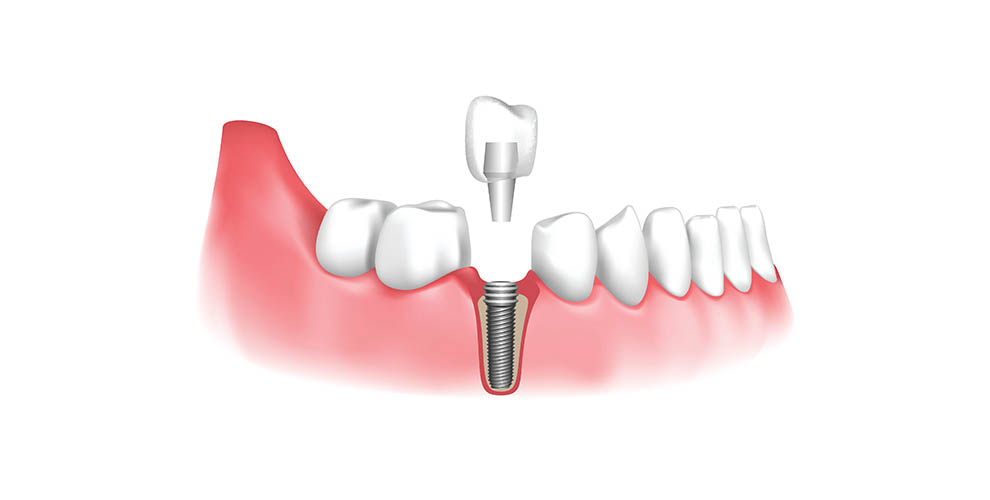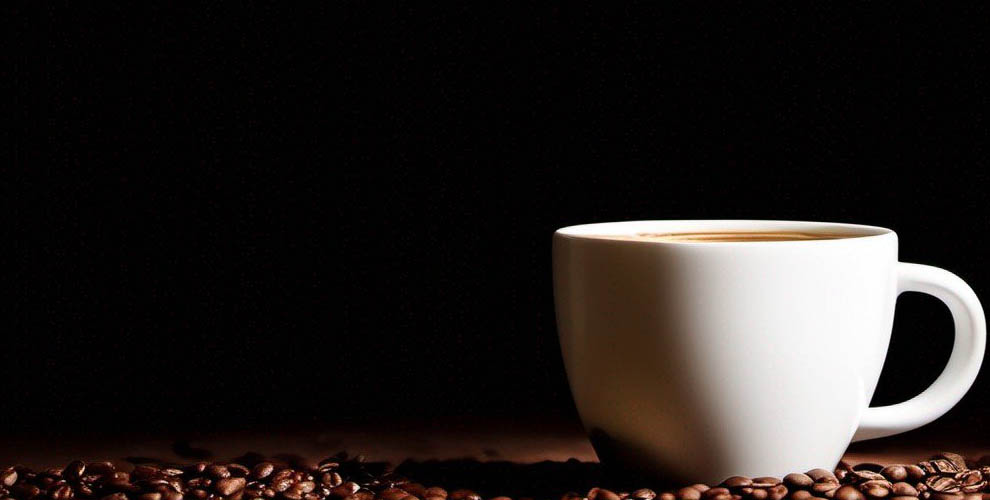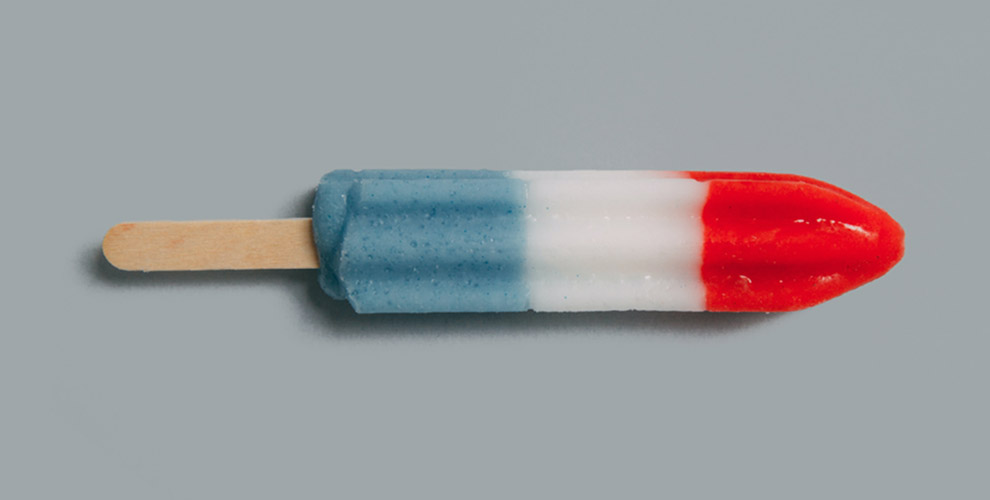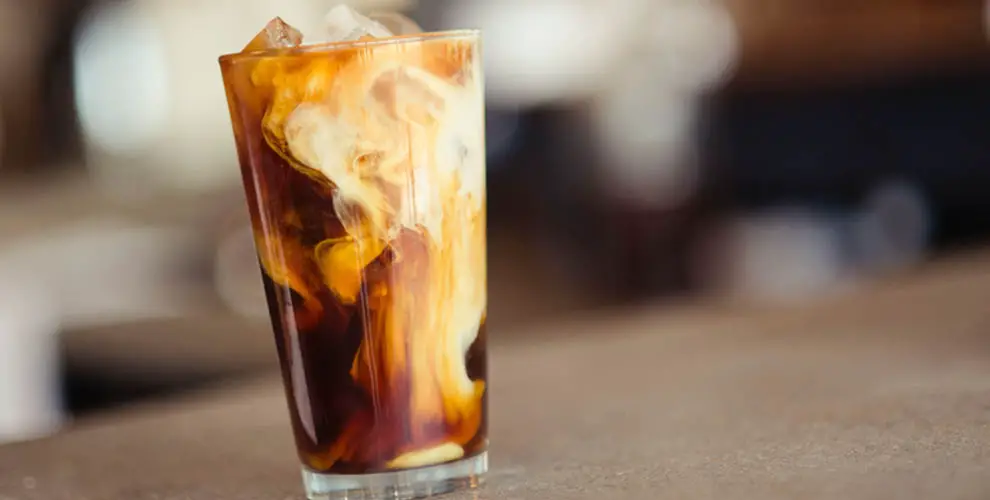Dental implant surgery is a significant dental procedure that can be both exciting and daunting. After the surgery, patients often have many questions about what they can and cannot do to ensure a smooth recovery process. One common query is whether it’s safe to enjoy a refreshing cup of cold coffee after dental implant surgery. In this blog post, we’ll explore this question in detail and provide some helpful insights to guide you through your post-implant surgery period.

Can You Drink Cold Coffee?
Now, let’s address the main question: Can you drink cold coffee after dental implant surgery? The answer is both yes and no, and it depends on the specific circumstances.
Yes, You Can Enjoy Cold Coffee
Once the Initial Healing Period Has Passed:
If you’ve successfully navigated the initial healing period without any complications and your dentist has given you the green light, you can enjoy cold coffee. However, there are some essential considerations to keep in mind.
Use a Straw:
To minimize the risk of disturbing the surgical site or causing any harm to your dental implants, it’s advisable to use a straw when sipping cold beverages. This can help direct the liquid away from the surgical area.
Avoid Very Hot or Iced Coffee:
While cold coffee is generally acceptable, extremely hot or iced coffee can have adverse effects on your dental implants. Extremely hot temperatures can potentially damage the implants, while iced coffee may cause discomfort during the initial healing stages.
No, You Shouldn’t Rush Into It
Listen to Your Dentist:
Your dentist’s instructions are crucial during the recovery process. If they recommend avoiding cold coffee or any specific beverages for a more extended period, it’s essential to follow their guidance.
Listen to Your Dentist:
Pay close attention to your healing progress. If you experience pain, discomfort, or any unusual sensations after drinking cold coffee, it’s wise to stop and consult your dentist.
When can I drink iced coffee after dental implant?

The timing for when you can safely drink iced coffee after a dental implant procedure can vary from person to person. It’s essential to follow your dentist’s specific post-operative instructions for a successful recovery. Typically, the timeline for enjoying iced coffee after a dental implant surgery is as follows:
- Initial Healing Period: During the initial healing period, which typically spans around 7-10 days, it’s advisable to avoid iced coffee. Your dentist may recommend sticking to lukewarm or room temperature beverages during this time. The cold temperature of iced coffee can potentially cause discomfort and slow down the healing process.
- Follow Dentist’s Advice: Listen to your dentist’s recommendations. They will assess your individual case and provide guidance based on your progress. If they suggest postponing iced coffee consumption for a longer period, it’s essential to heed their advice.
- Use a Straw: When you do eventually start enjoying iced coffee, it’s a good practice to use a straw. Using a straw can help direct the cold liquid away from the surgical area and reduce the risk of irritation or discomfort.
- Monitor Your Healing: Pay attention to your healing progress. If you experience any pain, sensitivity, or unusual sensations in the implant area after drinking iced coffee, it’s best to halt and consult your dentist. Discomfort may indicate that your implants are not fully healed or that you need to adjust your beverage choices.
In summary, the timeline for drinking iced coffee after a dental implant surgery is influenced by your healing progress and your dentist’s recommendations. While it may be possible to enjoy iced coffee after the initial healing period, proceed with caution, use a straw, and be attentive to any signs of discomfort. Your dentist’s guidance is essential to ensure the long-term success of your dental implants.
What foods to avoid with dental implants?

After getting dental implants, it’s important to avoid certain foods to promote the long-term success of your implants and to prevent potential complications. Here are some foods to avoid or consume with caution:
- Very Hard Foods: Foods like hard candies, ice cubes, and nuts can place excessive pressure on your dental implants, potentially causing damage or irritation to the surgical site.
- Sticky or Chewy Foods: Sticky or chewy foods, such as caramels, toffee, and gum, can potentially dislodge or harm your dental implants, especially during the initial healing period.
- Extremely Hot or Cold Foods: Very hot or cold foods and beverages can cause discomfort and may slow down the healing process, so it’s best to avoid them during the initial healing phase.
- Acidic Foods and Beverages: Highly acidic foods and drinks, like citrus fruits and sodas, can contribute to enamel erosion on your natural teeth. While dental implants themselves are not susceptible to decay or erosion, it’s important to maintain good oral hygiene and protect your natural teeth.
- Alcoholic Beverages: Alcohol can interfere with the body’s natural healing mechanisms and is best avoided during the initial recovery period.
- Excessive Caffeine: While caffeine itself is not detrimental to dental implants, excessive caffeine intake can contribute to dry mouth, which may affect overall oral health. Maintain proper hydration to counteract potential dry mouth.
- Sugary Foods and Beverages: Sugary foods and drinks should be consumed in moderation. Excessive sugar can contribute to gum disease and other dental issues.
- Tough Meats: Tough meats that require significant chewing should be avoided during the initial healing phase. Opt for softer alternatives to reduce stress on your dental implants.
- Chewing on Hard Objects: Avoid habits like biting your nails, chewing on pencils, or using your teeth as tools, as these can potentially harm your implants.
Remember to follow your dentist’s specific post-operative instructions and dietary recommendations. After the initial healing period, you can gradually reintroduce some of these foods into your diet, but it’s always wise to proceed with caution and be attentive to any discomfort or issues that may arise. Maintaining good oral hygiene and regular dental check-ups is essential for the long-term success and health of your dental implants.
What is the best food to eat after dental implant surgery?

After dental implant surgery, it’s important to choose foods that are easy to chew and won’t irritate the surgical site. Here’s a list of some of the best foods to eat during the initial healing phase:
- Soft Foods: Soft foods are the most suitable immediately after dental implant surgery. These include foods like mashed potatoes, oatmeal, yogurt, and pudding. They require minimal chewing and are gentle on your healing gums and dental implants.
- Smoothies: Blended smoothies made with soft fruits, yogurt, and protein powder can provide essential nutrients while being easy to consume. They can also help maintain hydration.
- Soups: Broth-based soups, such as chicken or vegetable soup, are a good choice. They are nourishing, easy to swallow, and can be served at a lukewarm temperature.
- Eggs: Scrambled eggs or omelets are soft and protein-rich, making them an excellent option for a post-surgery diet.
- Applesauce: Unsweetened applesauce is a soft and nutritious option that requires little to no chewing.
- Cottage Cheese: Cottage cheese is soft, high in protein, and easy to eat with minimal effort.
- Avocado: Mashed or pureed avocado is a nutritious and gentle food option.
- Pasta: Soft-cooked pasta, such as macaroni and cheese or pasta with a creamy sauce, is a good choice. Avoid al dente or very firm pasta during the initial healing period.
- Mashed Vegetables: Vegetables like mashed sweet potatoes or carrots are soft, easy to consume, and provide essential vitamins.
- Fish: Soft, flaky fish like tilapia or cod can be a good source of protein, but it should be well-cooked and easy to flake apart with a fork.
- Rice: Soft-cooked rice is a bland and easily digestible option that can be part of a post-surgery diet.
- Yogurt with Soft Fruit: Yogurt with blended or soft fruit, like bananas or berries, is not only nutritious but also easy to eat.
- Seedless, Skinless Fruit: Opt for fruits like melon or peeled and deseeded oranges that are soft and free of seeds.
- Hydrating Beverages: Staying hydrated is crucial for the healing process. Consume lukewarm water, herbal tea, or diluted fruit juices to maintain proper hydration.
Remember to follow your dentist’s specific post-operative dietary recommendations. As your healing progresses, you can gradually reintroduce a wider variety of foods into your diet. Patience and care in the early stages of recovery are essential for ensuring the long-term success of your dental implants.
Can I eat ice cream after dental implant?

After dental implant surgery, you may be wondering if it’s safe to indulge in some ice cream. The answer is yes, but with a few important considerations. In the immediate post-operative period, it’s generally best to avoid very cold foods, including ice cream, as they can cause discomfort and may slow down the healing process. During the initial healing phase, which typically spans around 7-10 days, it’s advisable to stick to a soft, lukewarm diet to minimize the risk of irritation to the surgical site and ensure a successful recovery.
Once you’ve successfully passed the initial healing period and received the green light from your dentist or oral surgeon, you can gradually reintroduce ice cream into your diet. When doing so, ensure that it’s not extremely cold, and consider letting it soften a bit at room temperature before consumption. It’s important to use caution and be attentive to any signs of discomfort or sensitivity in the implant area. If you experience any issues, consult your dentist for personalized guidance on when it’s entirely safe to enjoy ice cream and other cold treats.
What Are Dental Implants?
Before we delve into the topic of enjoying cold coffee post-implant surgery, let’s briefly understand what dental implants are. Dental implants are artificial tooth roots made of titanium that are surgically placed into the jawbone. They serve as a foundation for replacement teeth and offer a natural look and feel.
The Initial Healing Period
After dental implant surgery, it’s crucial to allow your body the time it needs to heal properly. The initial healing period is typically around 7-10 days, during which you may experience some discomfort, swelling, and potential bruising in the surgical area. During this time, it’s essential to follow your dentist’s post-operative instructions to ensure a successful recovery.
Is caffeine bad for dental implant?
Caffeine, in and of itself, is not inherently bad for dental implants. However, it’s important to consider the potential effects of caffeine on your oral health, including your dental implants. Here are some key points to keep in mind:
- Staining: Caffeinated beverages, such as coffee and tea, can contribute to teeth staining. While this may not directly impact the dental implant itself, it can affect the appearance of your natural teeth and any visible components of the implant, such as crowns.
- Dry Mouth: Caffeine can have a mild diuretic effect, potentially leading to increased urination and, in some cases, mild dehydration. Dehydration can contribute to dry mouth, which is a condition that can affect your overall oral health. Dry mouth can increase the risk of gum disease and other dental issues. Adequate hydration is essential for maintaining healthy gums and oral tissues surrounding your dental implant.
- Acid Erosion: Some caffeinated beverages, like soda, are acidic. Regular consumption of acidic drinks can lead to enamel erosion on your natural teeth. Dental implants themselves are made of materials that are not susceptible to decay or erosion, but the surrounding natural teeth can be affected.
- In Moderation: The key to enjoying caffeine without negatively impacting your dental implants is moderation. If you have dental implants, it’s essential to maintain good oral hygiene, which includes regular brushing and flossing. Additionally, consider minimizing the consumption of highly acidic or sugary caffeinated beverages and practice good hydration habits to prevent dry mouth.
- Consult Your Dentist: Your dentist is the best source of advice regarding your dietary choices and oral health. If you have concerns about caffeine consumption and its impact on your dental implants, discuss them with your dentist. They can provide personalized guidance and recommendations based on your specific situation.
In summary, caffeine itself is not detrimental to dental implants, but its potential effects on staining, dry mouth, and tooth erosion should be considered. Maintaining a balanced and healthy diet, along with proper oral hygiene and regular dental check-ups, is essential for the long-term success and health of your dental implants.
Can you drink iced coffee after bone graft?
After a bone graft procedure, it’s advisable to avoid drinking iced coffee for a period specified by your oral surgeon or dentist. Bone grafting is a surgical procedure that involves adding bone material to the jaw to enhance its strength and density. During the initial healing phase, which typically lasts several weeks, it’s important to be cautious with what you consume. Iced coffee, especially if it’s very cold, can potentially cause discomfort, slow down the healing process, or even harm the graft site. It’s crucial to follow your healthcare provider’s specific post-operative instructions and dietary recommendations to promote successful bone graft healing. Once you’ve received the green light from your dentist or oral surgeon, you can gradually reintroduce iced coffee into your diet, using a straw if necessary to minimize direct contact with the surgical area.
How long after dental implant can you drink hot coffee?
The timeline for when you can safely drink hot coffee after a dental implant procedure can vary depending on your individual healing progress and your dentist’s recommendations. However, here are some general guidelines to consider:
- Initial Healing Period: During the initial healing period, which typically spans around 7-10 days, it’s advisable to avoid very hot beverages, including hot coffee. The extreme temperature of hot liquids can potentially irritate the surgical site and slow down the healing process.
- Follow Dentist’s Advice: Listen to your dentist’s recommendations. They will assess your specific case and provide guidance based on your progress. If they suggest delaying the consumption of hot coffee for a longer period, it’s essential to follow their advice.
- Gradual Introduction: When you do start to reintroduce hot coffee, do so gradually. Start with lukewarm or mildly warm coffee to gauge your comfort and sensitivity. If you experience any discomfort, wait longer before attempting hotter beverages.
- Use Caution: Even after the initial healing period, it’s a good practice to use caution when consuming hot coffee. Sip it slowly and be mindful of any signs of discomfort. If you experience pain or sensitivity in the implant area, consult your dentist.
In summary, the timing for drinking hot coffee after a dental implant surgery depends on your healing progress and your dentist’s recommendations. While it may be possible to enjoy hot coffee after the initial healing period, proceed with caution and consider starting with lukewarm options to ensure your comfort and the long-term success of your dental implants.
How long after dental implants can I eat normally?
The timeline for when you can return to eating normally after getting dental implants can vary depending on your individual healing process. In most cases, you’ll need to follow a soft diet for the first week or so after the surgery. This helps minimize the risk of irritation or damage to the surgical site and allows the implants to integrate with the jawbone effectively. Your dentist or oral surgeon will provide you with specific post-operative dietary recommendations, and it’s essential to follow their guidance to ensure a successful recovery.
After the initial healing phase, which typically spans around 7-10 days, you can gradually start reintroducing regular foods into your diet. However, it’s still important to be cautious and avoid very hard or crunchy foods that could place excessive pressure on the implants or potentially disrupt the healing process. As your dental implants continue to heal and integrate with the bone, you can progressively return to your normal eating habits, typically within a few weeks to a few months. Your healthcare provider will monitor your progress and provide guidance on when it’s safe to resume a fully normal diet. Patience and careful adherence to your dentist’s recommendations are key to ensuring the long-term success of your dental implants.
How long after dental implants can I eat normally?
After getting dental implants, it’s essential to be mindful of your beverage choices to promote successful healing and long-term implant success. Here are some drinks to avoid or consume with caution:
- Very Hot Drinks: Immediately after the surgery and during the initial healing period, it’s best to avoid very hot drinks, such as scalding coffee or tea. Extreme heat can potentially irritate the surgical site and slow down the healing process.
- Iced or Extremely Cold Drinks: Similarly, very cold beverages, like iced drinks, should be avoided during the initial healing phase, as they can cause discomfort and potentially affect the surgical area.
- Alcoholic Beverages: Alcohol can have a dehydrating effect, and it’s best to avoid alcoholic drinks, particularly during the initial recovery period. Alcohol can also interfere with the body’s natural healing processes.
- Carbonated and Acidic Beverages: Carbonated drinks like soda and acidic beverages such as citrus juices can contribute to enamel erosion on your natural teeth. While dental implants themselves are not susceptible to decay or erosion, it’s important to maintain good oral hygiene and protect your natural teeth.
- Sugary and Sticky Drinks: Sugary drinks and those with high sugar content, such as many fruit juices and energy drinks, should be consumed in moderation. Excessive sugar can contribute to gum disease and other dental issues.
- Strawberry Smoothies and Red-colored Beverages: Be cautious with drinks that are red or contain strawberries, as these can potentially stain the teeth and any visible parts of the dental implant, such as crowns.
- Hard or Crunchy Drinks: Avoid drinks with hard or crunchy elements, as they can pose a risk to the dental implant or surgical site. Chewing on ice, for example, can be harmful.
- Caffeine in Excess: While caffeine itself is not detrimental to dental implants, excessive caffeine intake can contribute to dry mouth, which may impact your overall oral health. Maintain proper hydration to counteract potential dry mouth.
In general, it’s crucial to follow your dentist’s post-operative instructions regarding dietary restrictions and recommendations for beverages. After the initial healing period, you can gradually reintroduce some of these drinks in moderation, but it’s always wise to proceed with caution and be attentive to any discomfort or issues that may arise. Maintaining good oral hygiene and regular dental check-ups is essential for the long-term success and health of your dental implants.
What should you not drink after dental implants?
After undergoing dental implant surgery, it’s important to avoid very hot or very cold beverages, as extreme temperatures can potentially irritate the surgical site. Alcoholic beverages should also be avoided, particularly during the initial healing period, as alcohol can interfere with the body’s healing processes. Carbonated and acidic drinks, such as soda and citrus juices, should be consumed in moderation to prevent enamel erosion on natural teeth. Sugary and sticky drinks can contribute to gum disease and dental issues, so they should also be consumed sparingly. Be cautious with red-colored beverages and those containing strawberries, as they can potentially stain teeth and dental implant crowns. Avoid drinks with hard or crunchy elements, as they can pose a risk to the dental implant or surgical site. Excessive caffeine can lead to dry mouth, affecting overall oral health, so it’s best to maintain proper hydration. Always follow your dentist’s post-operative instructions for specific dietary recommendations after dental implant surgery.
What should you not drink after dental implants?
The healing process of dental implants is a crucial phase that determines their long-term success. While the actual speed of healing varies from person to person and depends on factors like overall health and individual circumstances, there are some general tips that may help promote a faster and smoother healing process:
- Follow Post-Operative Instructions: Adhering to the specific post-operative instructions provided by your oral surgeon or dentist is crucial. This includes taking prescribed medications, maintaining oral hygiene, and avoiding prohibited foods and drinks.
- Maintain Good Oral Hygiene: Proper oral care is essential for preventing infections and complications. Gently brush your teeth, dental implant, and gums, and use a prescribed mouthwash, if recommended.
- Control Swelling: Applying an ice pack to the surgical area during the first 48 hours can help reduce swelling and discomfort.
- Stay Hydrated: Drink plenty of water to keep your body and mouth well-hydrated. Proper hydration can promote faster healing.
- Avoid Tobacco and Alcohol: Refrain from smoking or using tobacco products, as they can slow down the healing process. Alcohol can also interfere with the body’s natural healing mechanisms.
- Eat a Balanced Diet: Consume nutrient-rich foods that are high in vitamins and minerals, particularly those that support bone health, such as calcium and vitamin D. A well-balanced diet can aid in tissue repair and healing.
- Limit Physical Activity: Avoid strenuous physical activities in the days immediately following the surgery to minimize the risk of bleeding and complications.
- Get Adequate Rest: Allow your body to rest and recover. A good night’s sleep is essential for the healing process.
- Avoid Stress: Stress can affect the body’s ability to heal. Try to manage stress through relaxation techniques and proper self-care.
- Regular Dental Check-Ups: Attend all scheduled follow-up appointments with your dentist or oral surgeon. They can monitor your progress and address any concerns promptly.
It’s essential to remember that dental implant healing is a gradual process that can take several months. While these tips can help promote faster healing, it’s equally important to be patient and let your body’s natural healing mechanisms do their work. If you have any concerns or experience unusual symptoms during the healing process, consult your dental care provider for guidance and reassurance.
Final Thoughts
In conclusion, the ability to drink cold coffee after dental implant surgery largely depends on your specific circumstances, your dentist’s recommendations, and the stage of your recovery. If you’re considering enjoying your favorite iced coffee, make sure to follow your dentist’s advice, use a straw, and be mindful of the temperature to avoid any potential complications.
Remember that a successful recovery is essential to the long-term success of your dental implants, so prioritize your oral health during this crucial time. If you have any doubts or concerns, always consult your dentist for personalized guidance on post-surgery care. Enjoy your coffee responsibly and cherish your newfound smile!
For further insights into coffee and its various aspects, you can also explore these informative articles:


